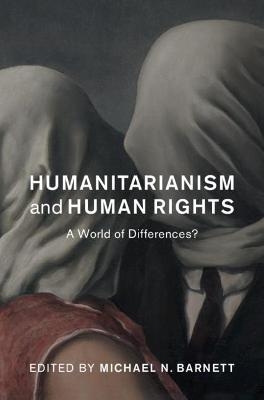
Humanitarianism and Human Rights
Cambridge University Press (Verlag)
978-1-108-83679-1 (ISBN)
This book explores the fluctuating relationship between human rights and humanitarianism. For most of their lives, human rights and humanitarianism have been distant cousins. Humanitarianism focused on situations in faraway places dealing with large-scale loss of life that demanded urgent attention whilst human rights advanced the cause of individual liberty and equality at home. However, the twentieth century saw the two coming much more directly into dialogue, particularly following the end of the Cold War, as both began working in war zones and post-conflict situations. Leading scholars probe how the shifting meanings of human rights and humanitarianism converge and diverge from a variety of disciplinary perspectives ranging from philosophical inquiries that consider whether and how differences are constructed at the level of ethics, obligations, and duties, to historical inquiries that attempt to locate core differences within and between historical periods, and to practice-oriented perspectives that suggest how differences are created and recreated in response to concrete problems and through different kinds of organised activities with different goals and meanings.
Michael N. Barnett is University Professor of International Affairs and Political Science at the George Washington University, Washington DC. He has written critically acclaimed books on global ethics, humanitarian intervention, and humanitarianism, including Eyewitness to a Genocide: The United Nations and Rwanda (2002) and Empire of Humanity (2012) and edited Paternalism Beyond Borders (2016).
Introduction. World of differences? Michael Barnett; Part I. Differences or Distinctions?: 1. Human rights and humanitarianization: from separation to intersection Samuel Moyn; 2. Suffering and status Jeffrey Flynn; 3. Humanitarianism and human rights in morality and practice Charles R. Beitz; 4. For a fleeting moment: the short, happy, life of humanism Stephen Hopgood; Part II. Practices: 5. Humanitarian governance and the circumvention of revolutionary human rights in the British Empire Alan Lester; 6. Humanitarian intervention as an entangled history of humanitarianism and human rights Fabian Klose; 7. Mobilizing emotions: shame, victimhood, and agency Bronwyn Leebaw; 8. At odds? Human rights and humanitarian approaches to violence against women during conflict Aisling Swaine; 9. Innocence: shaping the concept and practice of humanity Miriam Ticktin; 10. Reckoning with time: vexed temporalities in human rights and humanitarianism Ilana Feldman; 11. Between the border and a hard place: negotiating protection and humanitarian aid after the genocide in Cambodia, 1979-1999 Bertrand Taithe; Conclusion. Practices of humanity Michael Barnett; Bibliography; Index.
| Erscheinungsdatum | 07.10.2020 |
|---|---|
| Reihe/Serie | Human Rights in History |
| Zusatzinfo | Worked examples or Exercises |
| Verlagsort | Cambridge |
| Sprache | englisch |
| Maße | 235 x 160 mm |
| Gewicht | 640 g |
| Themenwelt | Geschichte ► Allgemeine Geschichte ► Neuzeit (bis 1918) |
| Sozialwissenschaften ► Politik / Verwaltung | |
| ISBN-10 | 1-108-83679-8 / 1108836798 |
| ISBN-13 | 978-1-108-83679-1 / 9781108836791 |
| Zustand | Neuware |
| Haben Sie eine Frage zum Produkt? |
aus dem Bereich


